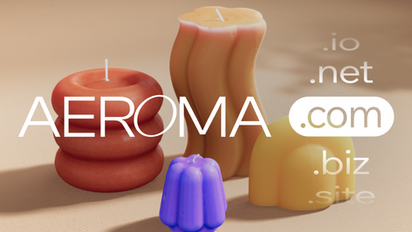A Beginner’s Guide to Build a Small Business Website
Build a Small Business Website Explained
Build a Small Business Website
SEO (Search Engine Optimization) is crucial for any website looking to increase its visibility and attract more visitors. One of the most effective tools for improving SEO is a SEO web builder. This tool can help website owners optimize their site for search engines, resulting in higher rankings and more organic traffic.

Build a Small Business Website Explained
Build a Small Business Website
1. Type of Website
The type of website you want to build will have a significant impact on the cost. There are different types of websites, such as informational websites, e-commerce websites, portfolio websites, and more. Each type of website has its own unique requirements and features that can influence the overall cost of development. For example, an e-commerce website with features like online payment integration and inventory management will typically cost more to develop than a simple informational website.
2. Design
The design of a website plays a crucial role in its overall success. A well-designed website not only enhances the user experience but also reflects the brand’s identity and values. The cost of website design can vary depending on the complexity of the design, the number of pages, and the level of customization required. Custom-designed websites tend to cost more than using pre-made templates, but they offer a unique and tailored design that sets you apart from competitors.
3. Development
The development phase of a website involves turning the design into a functional website. This includes coding, testing, and optimizing the website for performance. The cost of development can vary based on various factors such as the technology stack used, the number of features and functionalities, and the level of customization required. Hiring skilled developers and programmers can also impact the overall cost of website development.
4. Content Management System (CMS)
A Content Management System (CMS) is a software that enables users to manage and update the content of their website without the need for technical expertise. Popular CMS platforms like WordPress, Drupal, and Joomla offer a range of features and customization options to build and maintain a website. The cost of a CMS can vary depending on the platform chosen and any additional plugins or extensions required for specific functionalities.
5. Domain and Hosting
Every website requires a domain name (e.g., www.yourwebsite.com) and web hosting to be accessible on the internet. The cost of a domain name can range from a few dollars to hundreds of dollars annually, depending on the domain extension and availability. Web hosting services also vary in price based on factors like storage space, bandwidth, security features, and customer support. It is essential to choose a reliable hosting provider that meets your website’s needs while staying within your budget.
6. Maintenance and Updates
Once your website is live, it will require ongoing maintenance and updates to ensure optimal performance and security. Regular updates to the CMS, plugins, and other software components are essential to protect against security threats and keep the website running smoothly. The cost of maintenance can vary depending on the complexity of the website, the level of support required, and any additional services like backups and security monitoring.
7. Additional Features and Functionality
Depending on your website’s goals and objectives, you may require additional features and functionality to enhance the user experience and achieve your business goals. These features can include social media integration, SEO optimization, email marketing tools, contact forms, and more. The cost of integrating these features will vary depending on the complexity and customization required.
Building an online store that is beast-free can be a great way to attract eco-conscious consumers and differentiate yourself from the competition. There are a number of website builders that cater to this growing market, making it easier than ever to create a cruelty-free online store. In this article, we will take a look at some of the best beast-free website builders available, as well as some tips for building a successful online store that caters to ethical shoppers.
One of the most popular beast-free website builders is Shopify. Shopify is a user-friendly platform that allows you to create a professional-looking online store with ease. The platform offers a number of features and templates that are specifically designed for eco-friendly and cruelty-free businesses, making it a great choice for those looking to build a beast-free online store.
Another great option for building a beast-free online store is Big Cartel. Big Cartel is a smaller, indie-focused platform that is well-suited for artists, makers, and small businesses. The platform offers a range of customizable templates and features that are perfect for creating an ethical online store.
For those looking for a more budget-friendly option, Ecwid is a great choice. Ecwid is a versatile platform that can be easily integrated into your existing website or social media pages, making it a great option for small businesses and startups. The platform also offers a number of features that are specifically designed for eco-friendly businesses, making it a great choice for those looking to build a beast-free online store on a budget.
When building a beast-free online store, it is important to consider the types of products you will be selling. Look for suppliers that offer cruelty-free and vegan products, and make sure to thoroughly research the ingredients in each product to ensure that they are truly animal-friendly. This information can be included in your product descriptions and on your website to help build trust with your customers.
It is also important to consider your branding and marketing efforts when building a beast-free online store. Make sure that your website and social media pages clearly communicate your commitment to cruelty-free and ethical products. Consider partnering with animal rights organizations or influencers in the vegan and eco-friendly space to help spread the word about your brand.

How to Build a Small Business Website
Build a Small Business Website
In conclusion, a website portfolio case study device generator is a valuable tool for anyone looking to create a professional and effective online portfolio. Whether you’re a freelancer, artist, designer, or any other creative professional, a website portfolio can help you showcase your work and attract new opportunities. By using a website portfolio case study device generator, you can save time, create a polished looking portfolio, and reach a wider audience. So why wait? Start creating your website portfolio today and take your online presence to the next level.

